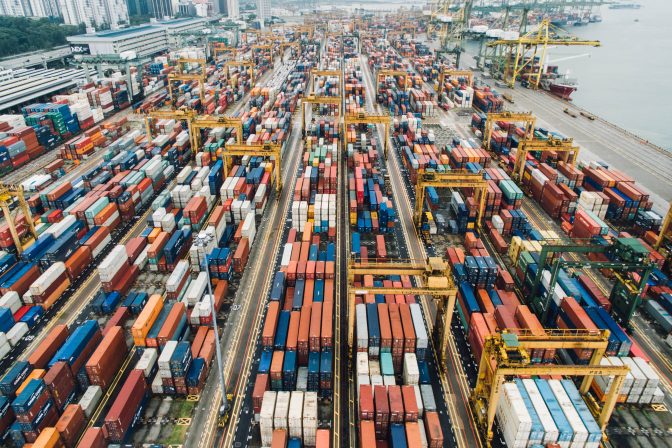
In this article, we will try to check the subjection to VAT of certain transactions.
Taxable event: VAT
Imagine a mercantile company, which develops the activity of manufacturing plastic parts for automobiles and their subsequent assembly in an engine, proceeding to its delivery within the Territory of Application of the Tax (TAI) to a third party, different from the client itself.
The client is a merchant not established in the Territory of Application of the Tax (TAI).
Faced with the doubt of whether these transactions are subject to VAT or not, the commercial company submits a query to the Directorate General of Taxes (DGT) who establishes that:
- The commercial company (consultant) has the status of entrepreneur or professionalfor VAT purposes.
- The assembly operations ofthe parts that you are going to carry out will be considered as the provision of services. However, in certain cases it may be that a certain operation is composed of several elements,which raise the question of whether those operations must be divided in order to give each of them the corresponding tax treatment or whether, on the contrary, they must be treated as a single operation.
- To this end, the Court of Justice of the European Union (CJEU) has already understood that:
- a) The reality of the operations, understood from the perspective of the recipient,is the one that must prevail, so it is inappropriate to carry out an artificial fractionation of the operations for the sake of their tax classification.
- (b) Where a particular transaction does not constitute an end in itself, but is intended to complement another, the transaction may be regarded as complementary to that operation.
- (c) It is irrelevant, in principle, that a single price is charged for transactions.
- Therefore, in our case, if the customer understands that he buys a good and some services, these being two different operations, there will be two different operations. If, on the other hand, the delivery of the good or the provision of the service, is a means of enjoying in better conditions the main operation, we will be in the presence of a delivery of goods with an accessory provision of services or vice versa. It appears that the transaction under consultation will, as a whole, have the status of delivery of goods.
- To this end, the Court of Justice of the European Union (CJEU) has already understood that:
- In relation to the localization rules of the taxable event delivery of goods the General Directorate of Taxes understands that since the goods delivered are made available to the acquirer in the Territory of Application of the Tax, the delivery of goods subject to consultation must be understood to be made in that territory and will be subject to VAT.
Taxable event: transactions subject to VAT
The supply of goods, together with the supply of services, constitute the vat-related taxable events, in so far as they manifest the development of business or professional activities.
Delivery of goods
As a general rule, this taxable event is defined as the transfer of power of disposal over tangible assets, even if it is effected by the transfer of securities representing those assets. For these purposes, gas, heat, cold, electrical energy and other forms of energy are considered bodily property. The concept of delivery of goods is an EU concept that is not subject to compliance with the requirements that in the civil law of each Member State condition the legal transfer of property.
The transfer of the power of disposal can be produced by any legal title,whether that of sale, contribution or dissolution of the company, administrative or jurisdictional resolution, etc.
Provision of services
All transactions subject to VAT which do not constitute supplies of goods are classified as supplies of services. The Value Added Tax Act (LIVA), at this point, follows the criterion of EU regulations, which offer a residual concept of the provision of services.
For vat purposes, it is particularly important that a certain taxable event be considered the supply of goods or services, since this implies, among others, differences in the location of the same, the determination of the accrual and the fixing of the applicable tax rate.
Legally, an enunciative enumeration of operations that have this consideration is made.
Where is this service located?
If your company provides services abroad, or receives them, it is important that you know how to identify where each of them is considered located. In this way you will be able to determine the VAT applicable in each case.
Location rules: If your company provides services to individuals or companies resident abroad – or receives them – you must determine what VAT is applicable in each case (whether Spanish or foreign) and who should pass it on. To do this, you must first determine in which territory each service is understood to have been performed.
Consult the applicable location rules in each case and solve your doubts
 General rules
General rules
According to the recipient
In general, the important thing is who the recipient is:
- Company: If the recipient is a company or a professional, the service is understood to be carried out in their territory, regardless of where the provider is located and from where the service is provided. In this case, as the transaction is taxed according to the VAT of the country of the recipient, the provider must not pass on VAT. (If the recipient is from the EU, he himself must levy the tax himself.)
- Particular: If the recipient is an individual, in general, the service will be considered to be performed in the place where the provider is established, provided that it is established in Community territory. In this case, as the applicable VAT is that of the provider’s country, the latter must issue its invoices with the VAT of its territory.
exception
The latter rule is not complied with in some services provided by EU entrepreneurs to individuals outside the EU, where the service is considered to be consumed outside Europe and should not carry VAT.
This is the case, for example, for advocacy and advisory services (except those related to real estate), translation, engineering, etc. In these cases the provider must not charge VAT!
Special rules
The general rules indicated will serve you in most cases. However, the law establishes special location rules
for certain services.
Some of those rules are:
- Services related to real estate are understood to be located where the property is located.
- Catering and catering are located in the place of material provision of the service.
- Those of transport of passengers, in the place in which the transport is carried out.
In general, the services provided to entrepreneurs are understood to be located at their headquarters and vat is applied in that territory. When the recipient is an individual, they are considered to be carried out in the territory of the service provider.
If you have any questions or need any clarification about which transactions are subject to VAT and which are not, you can contact any of our advisors to help you resolve it.









